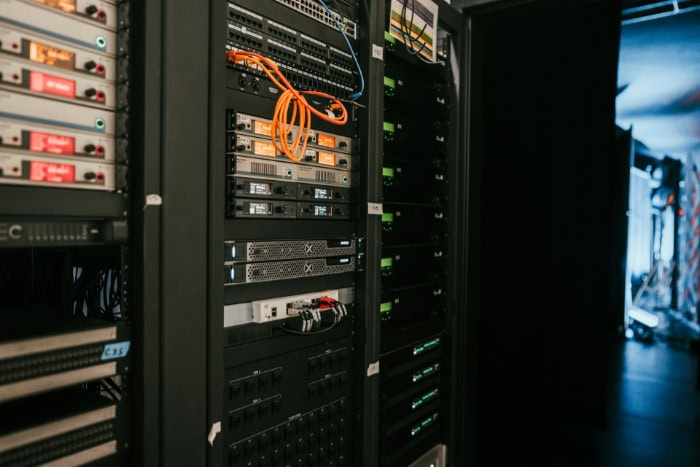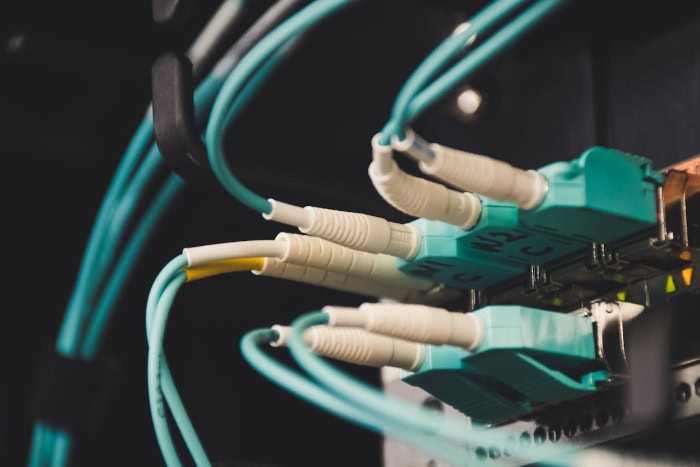Centralized vs. Decentralized Network: Learn the Differences

The way networks are designed and operated affects nearly every aspect of our digital interactions. Centralized networks, characterized by a single governing authority, are known for their efficiency and ease of management but often come with significant risks, including potential data breaches and reliance on a single point of failure.
In contrast, decentralized networks distribute authority across multiple nodes, enhancing resilience and user control, while presenting new challenges in terms of complexity and coordination.
Fundamental Concepts
Understanding centralized and decentralized networks forms the foundation for grasping how information is managed and shared in various systems. Each type of network operates on distinct principles that influence everything from security to user experience.
Definition of Centralized Networks
Centralized networks are characterized by a single point of control, where one entity manages and governs the entire network. This structure simplifies decision-making and streamlines processes, providing consistency and efficiency in operations.
The central authority oversees all data transactions, which can lead to quick responses and unified management practices.
However, this design also presents significant risks, as the reliance on a single control point creates vulnerabilities. If the central server or authority experiences a failure or security breach, the entire network can be adversely affected, leading to data loss, service disruptions, or privacy violations.
Prominent examples of centralized networks include traditional banking systems, where a central institution manages customers' accounts and transactions. Social media platforms also exemplify this model, as a single organization controls user data, access, and content moderation, impacting user experience and privacy.
Definition of Decentralized Networks
Decentralized networks operate on a fundamentally different principle, distributing control across multiple independent nodes. Each participant in the network can operate autonomously, making decisions without a central authority.
This distributed approach enhances resilience, as the failure of one node does not compromise the entire system.
The independence of nodes not only fortifies security but also empowers users, allowing for greater control over their data and interactions. In decentralized networks, users often have a direct say in governance and operations, fostering a sense of community and collaboration.
Blockchain technology is a leading example of decentralized networks, where transactions are recorded across numerous nodes without reliance on a single entity. Peer-to-peer systems, used in file sharing applications like BitTorrent, also illustrate this model by enabling users to directly connect and share resources without a central server.
The flexibility and security of these networks make them appealing in various applications, especially where trust and transparency are paramount.
Advantages and Disadvantages

Both centralized and decentralized networks come with their own set of strengths and weaknesses. These advantages and disadvantages shape their effectiveness in various applications, influencing how organizations and individuals choose to adopt these technologies.
Benefits of Centralized Networks
Centralized networks provide simplicity and ease of management, making them attractive for organizations and businesses, especially those with limited resources. With a single authority overseeing operations, decision-making processes tend to be more straightforward, allowing for quicker resolutions to issues and streamlined communication.
This centralized structure often leads to uniformity in service delivery, which can enhance user satisfaction.
Cost-effectiveness is another significant benefit of centralized systems, particularly for smaller organizations. Maintaining one central server or database can reduce operational expenses compared to managing multiple nodes in a decentralized setup.
For businesses that require efficient resource allocation without extensive infrastructure, centralized networks often present a practical and economical solution.
Drawbacks of Centralized Networks
Despite their advantages, centralized networks are not without risks. Their reliance on a single point of control makes them vulnerable to failures.
If the central server goes down due to technical issues or cyberattacks, access to the entire network can be disrupted, affecting all users simultaneously. This single point of failure poses a significant risk to reliability and availability.
Moreover, centralized systems are prone to data breaches and privacy concerns. When all data is stored in one location, it becomes an attractive target for hackers.
A successful breach can lead to substantial data loss and compromise user privacy, damaging trust and potentially leading to legal ramifications for the organization involved.
Benefits of Decentralized Networks
Decentralized networks offer enhanced security and fault tolerance, making them a robust option for many applications. By distributing data and control across multiple nodes, these networks reduce the risk of total failure.
Even if one node is compromised, the rest of the network can continue to operate, ensuring that services remain available and data remains secure.
Another significant advantage is the greater user control over data. In decentralized systems, users often retain ownership of their information, minimizing the risk of censorship and enabling more democratic participation in network governance.
This autonomy fosters a sense of trust and encourages users to engage more fully with the system, knowing they have more control over their contributions and privacy.
Drawbacks of Decentralized Networks
While decentralized networks provide many benefits, they also come with challenges. One notable drawback is the complexity in management and coordination.
As control is spread across numerous nodes, ensuring consistent performance and communication can be more difficult. This complexity may require advanced technical expertise to maintain, which can be a barrier for some users or organizations.
Additionally, decentralized networks can experience latency issues due to their distributed nature. Because data may need to travel across various nodes before it reaches its destination, response times can be slower compared to centralized systems.
This delay can affect the user experience, especially in applications requiring real-time interactions or data exchanges. Balancing the benefits of decentralization with the challenges of performance can be a significant consideration for those choosing this network model.
Security Considerations

Security is a critical aspect of both centralized and decentralized networks, influencing how data is protected and how vulnerabilities are addressed. The structure of each network affects its security protocols and risks.
Security in Centralized Networks
In centralized networks, the concentration of control and data management creates specific security risks. Relying on a single authority to oversee all operations means that if that central point is compromised, the entire network may be at risk.
Data centralization makes these networks attractive targets for cyberattacks, as hackers can potentially access vast amounts of information by breaching a single server or database. This vulnerability can lead to significant consequences, including data theft, service disruptions, and loss of user trust.
To mitigate these risks, centralized networks commonly employ various security measures. Firewalls act as a barrier between the internal network and external threats, helping to control incoming and outgoing traffic.
Additionally, encryption protects data by transforming it into an unreadable format, ensuring that even if data is intercepted, it cannot be easily accessed by unauthorized parties. Regular security audits and updates are also critical practices that help maintain the integrity of centralized systems, allowing organizations to identify and address potential vulnerabilities before they can be exploited.
Security in Decentralized Networks
Decentralized networks incorporate unique security mechanisms that enhance protection against attacks. With no single point of control, these systems are inherently more resilient.
If one node is compromised, other nodes continue to function normally, thereby maintaining the overall integrity of the network. This distributed architecture makes it more challenging for attackers to disrupt the entire system.
One of the primary methods for strengthening security in decentralized networks is the use of cryptography. Transactions and communications within these networks are often secured through cryptographic techniques, which ensure that data remains confidential and tamper-proof.
Additionally, consensus protocols play a crucial role in validating transactions across the network. These protocols require a majority of nodes to agree on the validity of a transaction, reducing the likelihood of fraudulent activities and ensuring that malicious actors cannot easily manipulate the system.
The resilience of decentralized networks against attacks lies in their structure. Because each node operates independently, the impact of any single attack is minimized, allowing the network to continue functioning even in the face of targeted efforts to disrupt it.
This makes decentralized networks an appealing choice for applications where security and data integrity are paramount.
Performance and Scalability

Performance and scalability are critical factors that determine how well a network can handle varying levels of demand. Both centralized and decentralized networks exhibit distinct characteristics in these areas, impacting their suitability for different applications.
Performance Characteristics of Centralized Networks
Centralized networks excel in efficiency due to their reliance on centralized resources. With all data and processing managed by a single server or authority, tasks can be executed quickly and responsively.
This centralized approach facilitates streamlined operations, allowing for rapid data retrieval and processing speeds. Users generally experience consistent performance levels, making centralized networks well-suited for applications that require high-speed transactions and real-time data access.
However, this efficiency comes with limitations when it comes to scalability. As traffic increases and more users access the network, the centralized server may struggle to handle the load.
This strain can lead to slower response times, service interruptions, and degraded performance. For organizations anticipating significant growth or fluctuating demand, the constraints of centralized networks can pose challenges, potentially necessitating costly upgrades or additional infrastructure to maintain acceptable performance levels.
Performance Characteristics of Decentralized Networks
Decentralized networks offer a different approach to performance and scalability. By distributing control and resources across multiple nodes, these networks can efficiently scale by simply adding new nodes without overloading any single point.
This flexibility allows decentralized networks to adapt dynamically to increases in user demand and data volume. As more nodes join the network, they contribute their processing power, enhancing overall performance and ensuring that no single node bears the entire burden of traffic.
Additionally, decentralized networks can benefit from localized processing capabilities. Each node can process data independently, reducing the time it takes to complete transactions.
This distribution of tasks can lead to improved responsiveness, as users may interact directly with the nearest node rather than relying on a central server. While decentralized systems may face challenges related to coordination and consistency, their inherent scalability and potential for enhanced performance make them a powerful option for applications that require robust and flexible operational capabilities.
Use Cases and Applications

The choice between centralized and decentralized networks plays a crucial role in various industries, shaping how organizations manage data and interact with users. Each network type serves specific purposes and excels in different contexts.
Centralized Network Use Cases
Centralized networks are particularly beneficial in industries where control, efficiency, and consistency are paramount. The finance sector, for example, relies heavily on centralized systems to manage transactions and customer accounts.
Banks and financial institutions utilize these networks to maintain tight security and ensure rapid processing of financial data, which is essential for customer satisfaction and regulatory compliance.
Healthcare is another industry that can benefit from centralized networks. Patient records and sensitive medical information are typically stored in centralized databases, allowing healthcare providers to access and share information quickly and securely.
This centralized management streamlines administrative processes, enhances data sharing among professionals, and improves patient care through immediate access to critical information.
Specific applications of centralized networks extend to cloud services and online retail. Cloud service providers host vast amounts of data on centralized servers, enabling users to access their information from anywhere while providing robust security measures.
In online retail, centralized platforms allow businesses to efficiently manage inventory, process transactions, and analyze customer data to optimize sales strategies.
Decentralized Network Use Cases
Decentralized networks shine in sectors where transparency, security, and user autonomy are crucial. Cryptocurrency is one of the most notable examples, with blockchain technology enabling peer-to-peer transactions without a central authority.
This decentralized approach enhances security, as the risk of fraud is minimized, and users maintain control over their digital assets.
Supply chain management also leverages decentralized technologies to improve transparency and traceability. By utilizing blockchain, companies can track products from origin to destination, ensuring data integrity and reducing the risk of fraud or contamination.
This level of visibility fosters trust among consumers and stakeholders alike, as all parties have access to verifiable information regarding the movement of goods.
Successful implementations of decentralized networks can be found in platforms like Ethereum and BitTorrent. Ethereum supports a vast array of decentralized applications (DApps) that facilitate everything from smart contracts to decentralized finance (DeFi).
BitTorrent, on the other hand, utilizes a peer-to-peer model to enable users to share files directly without relying on a central server, showcasing the efficiency and resilience of decentralized systems.
Conclusion
Evaluating centralized and decentralized networks reveals distinct advantages and challenges associated with each model. Centralized networks offer efficiency, ease of management, and cost-effectiveness, making them suitable for industries like finance and healthcare.
However, their vulnerabilities to single points of failure and data breaches pose significant risks that organizations must carefully consider.
On the other hand, decentralized networks enhance security, promote user control, and provide scalability, making them ideal for applications in cryptocurrencies and supply chain management. While they may introduce complexities in management and potential latency issues, their resilience against attacks and transparency often outweigh these drawbacks.
Selecting the appropriate network type hinges on understanding the specific needs and priorities of each application. As technology continues to advance, the relevance of both centralized and decentralized networks remains significant, shaping the future of data management and user interactions across various sectors.


